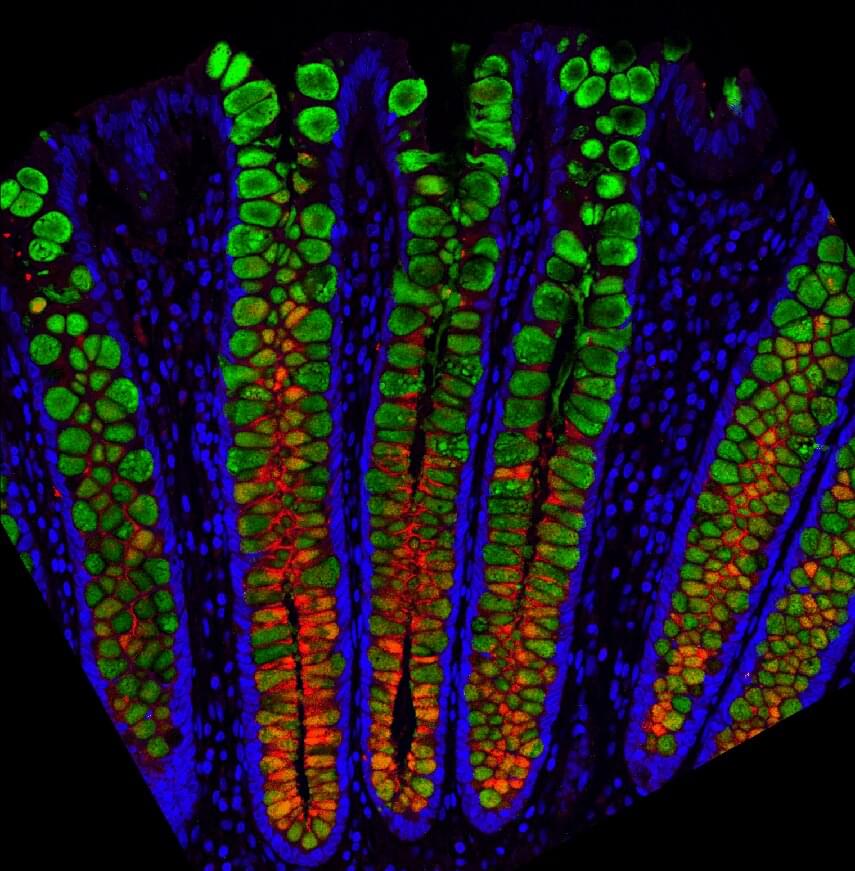If you get nervous, you might feel it in your gut. If you eat chili, your gut might revolt, but your friend can eat anything and feel great. You can pop ibuprofen like candy with no ill effects, but your friend’s belly might bleed and might get no pain relief. Why is this? The quick answer is because we’re all different. The next questions are how different exactly, and what do these differences mean for health and disease? Answering these is much more difficult, but the UNC School of Medicine lab of Scott Magness, Ph.D., is revealing some interesting scientific answers.
For the first time, the Magness lab used entire human GI tracts from three organ donors to show how cell types differ across all regions of the intestines, to shed light on cellular functions, and to show gene expression differences between these cells and between individuals.
This work, published in Cellular and Molecular Gastroenterology and Hepatology, opens the door to exploring the many facets of gut health in a much more precise manner at greater resolution than ever before.
